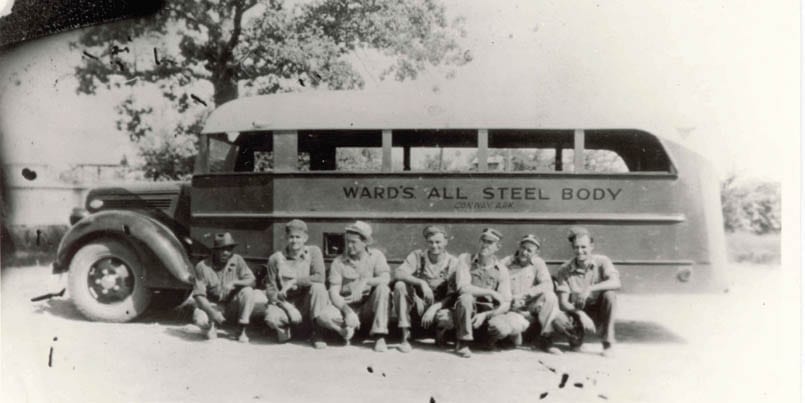19 Jun 2020 Our enduring entrepreneurial spirit
Have you, or has someone you know, ever created, organized and conducted a business and taken financial risks to reach a goal? Then you or they are an “entrepreneur” (on-truh-pruh-noor)!
The concept is not new to us now, but it was once innovative because the United States was the first country to support it as a system within capitalism. “Capitalism” is not a dirty word. It is our mid-1800s economic system in which individuals, rather than governments, own property and businesses. In other words, it is part of the freedom of the “American Dream.”
But let’s go back a little. In fact, it began when American settlers traded and bartered with Native Americans for what each needed or wanted. No Walmart, grocery stores, car lots or medical clinics. No roundabouts or splash pads. They dined mainly on meat, fish, birds, seeds, nuts, fruits and dependable vegetables. Increasingly, the cultures involved found the need for the exchange of real money for products or services.
Every era finds reason to begin businesses. On the movement westward in the early 1800s, the business concepts of mining, banking, land sales and building railroads and waterways would grow and thrive. In time, immigrants from Europe became entrepreneurs who did what they did best and provided what their customers needed – cuisines, crafts, building, laundering, needlework, logging and mechanics. Later, enterprising minds built industries employing the use of assembly lines.
To view matters a bit earlier in our own community, it was by 1819 that Arkansas would become a territory. Cherokee, Quapaw and other Native Americans were still present in the Faulkner County area. Arkansas became a state in 1836, with Faulkner County formed in 1873 and Conway incorporated in 1875.
There would be many post-Civil War entrepreneurs arriving here from the north, some as crooked carpetbaggers looking for easy money before moving on. However, many of our local streets and buildings hold the names of the more serious who simply wanted to create a small, peaceful community following the grief and devastation of an emotional war of division. They did just that using their talents, minds and finances with eyes on the future. Some profited; some went bankrupt using their own money. While it is doubtful the town is what they envisioned, plans were hammered out with good intentions and exceptional abilities.
Names to remember in this regard are former New York resident and Conway founder Asa Peter Robinson; plantation owner John E. Little; former Confederate POW, Conway mayor, newspaper owner and college supporter Colonel G. W. Bruce; the 1872 mercantile owner Max Frauenthal; the many owners of the necessary wagon yards; soft drink bottling works owner Rev. J. C. Dawson.; six newspapers owned individually by eight men and one woman; 15 hotel owners; and renowned cabinet maker, builder and Arkansas Gov. George Donaghey.
Between 1891 and 1913, Hendrix professor George Burr would design and operate the light plant as well as a sewer system and the first telephone system. Five men established the first bank. Only a small sample of later 20th century bustling businesses included Dave Ward’s bus company, James Clayton’s radio station KCON, Heiliger’s book store, Dean Milk Co., Warren’s Freezer Locker, Neil Ward’s Ornamental Iron, Tommy’s Restaurant, and yes, the Dandee Dog!

There are several forms of entrepreneurship, but there are two basic types. Freelancing is when an individual’s own identity is in his or her own product or services, and payment is received upon completion. Entrepreneurs are paid when their owned or operated businesses sell their commercial products or services, likely assisted by one or more employees. In our own state of Arkansas, there is a long list of past and present persons who became famous for each type.
A few freelancers representing Arkansas would include architects E. Faye Jones and Edward Durell Stone; opera conductor Sarah Caldwell, singers Glen Campbell and Johnny Cash as well as Conway Twitty and his drummer, Conway native Tommy Markham; horticulturalist and designer P. Allen Smith; and makeup artist and professional casting agency owner Sarah Tackett, another Conway native. Among the many prominent business entrepreneurs are W. T. Dillard, J.B. Hunt, Paul Klipsch and Sam Walton. It is easy to see all of those who sell their personal “brand,” and those who promoted ideas to create a wide distribution of commercial products or services.
Our town of the 1870s did not take long to become a thriving town with every imaginable business anyone of that time could expect. By 1960, our automobile dealerships, apparel shops, groceries, department stores, cobblers, dining establishments, funeral homes, meat markets, feed stores, hotel and ice cream shops were what put us on the map. All of them had single or four-digit phone numbers!
Also by 1960, our changing culture brought new products and services that came and went and the Big Box stores had their effect. Several family businesses remain despite product and generational changes. Newer generations or residents may have a desire to push a new idea or “build a better mouse trap.” Some have a goal of becoming one of the “moneyed,” and many simply want work that provides a living but is enjoyable and utilizes their personal abilities.
It seems now would be a good time to encourage more of the latter and let them start businesses! Not everyone belongs in a cubicle in front of a computer. Indeed, it is impossible for anyone to avoid needing to call a mechanic, plumber, seamstress, proofreader, caregiver, handyman or clock repairman. Their phone number may not be only three digits or even in the phone book or online at first, but recommendations by “word of mouth” can often be better than a highway billboard.
Selected text from “Faulkner County Its Land and People” (1986) is included in this article.
- They found their ‘true grit’ - January 5, 2026
- And that’s what Christmas is really all about - December 2, 2025
- Giving thanks - November 4, 2025









